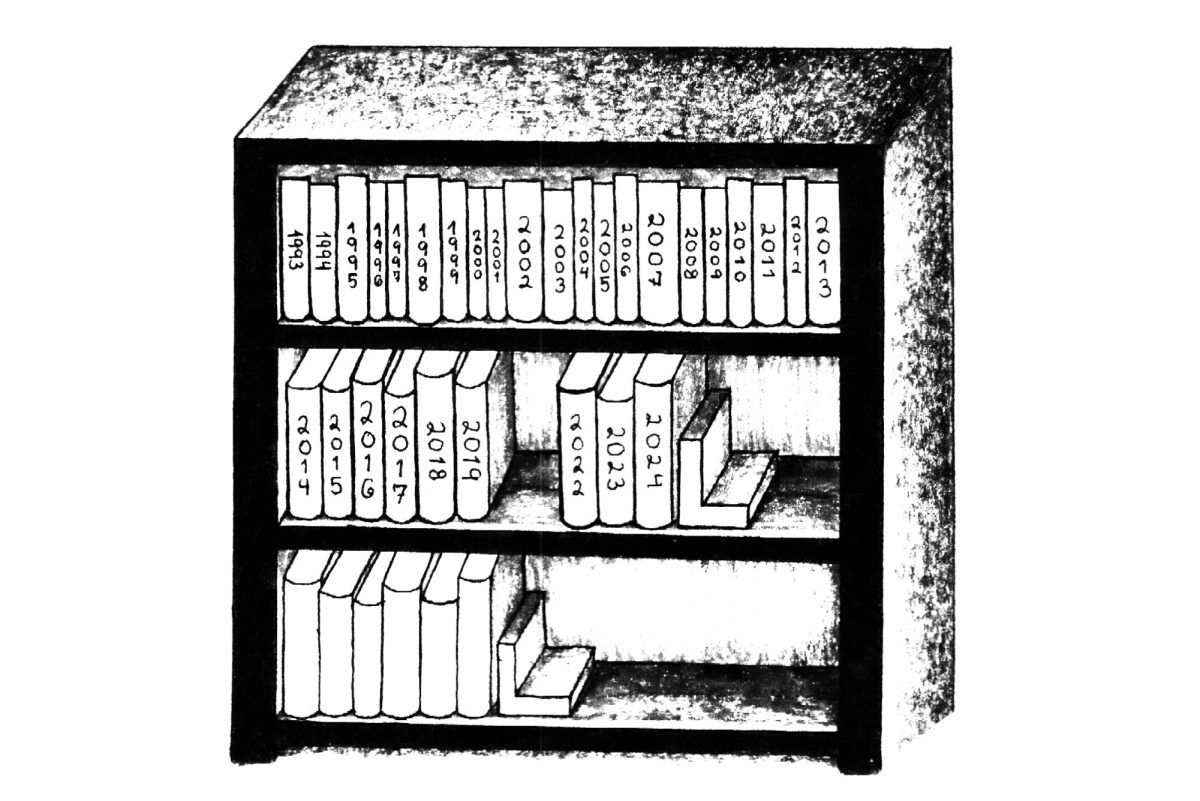For two weeks before the academic year began, and into the first week of classes, I couldn’t sleep. My brain had no desire to rest, feeling as though it needed to be awake and alert to think about something important, but I couldn’t put a finger on what was making me so uneasy.
I can only guess that I was worried about an amalgamation of new events that were taking place and about to take place – the prospect of the first in-person academic year since March 2020, my senior year, after which I may or may not get a job, and living off campus for the first time.
But these changes barely scratched the surface of all of the changes that upended my life since the pandemic began. Since March 2020, I have lost friendships, forged new ones, started living with a completely new set of roommates, completed almost half of the classes for my major from home and started seeing a therapist regularly. Though most of these changes have been positive and I find myself much happier than I was toward the end of my sophomore year, I still couldn’t sleep.
In an aha moment at 5:15 a.m. one morning, after six restless hours of trying, and failing, to sleep, I realized that I never allowed myself to process any of these changes, or even to acknowledge that they were changes. Every time an adult lamented about how much the pandemic had taken away, and how much us young, college-going folk had lost, I chafed at the suggestion. Admitting or thinking about the loss of “normal” college years would make me feel helpless given that I couldn’t do anything about the situation. Whenever I started to think about how different my life is now compared to 2020, I just rationalized the changes as progressions in life rather than seeing them as byproducts of the pandemic.
The line between natural, and pandemic-induced progression is blurred for me. The friendships I ended up losing were already on their way out of my life, and the friendships I forged were already developing before the pandemic hit. But the manner in which each relationship either ended or became stronger was heavily influenced by the fact that I was at home and not on campus. While in isolation, I was more callous and less caring in allowing friendships to be severed because I knew I wouldn’t have to deal with the consequences in the near future, and I made twice the effort to make connections with new friends by reaching out to them through text and phone calls. Rather than living in a dorm and seeing all of my friends constantly, I was at home, with more freedom to reach out to the people I was more interested in spending time with, and less inclination and obligation to make an effort with the relationships that had already been in decline.
Needless to say, this year has been difficult to process at all. The word “isolating” has been thrown around a lot this past year, but the isolation I could deal with. I spent the better half of my freshman year alone in a dorm room, watching my roommates go out on weekends and seeing peers having lunch with actual friends. The isolation, to some extent, was a welcome pause from the four-year marathon that college can feel like. Without all of my peers running quite so close to each other, it was easier to move farther away from those that were getting uncomfortably close and to move closer to those who I wanted to run beside.
Instead, the past year’s worst characteristic was its uncertainty. I didn’t know whether the pandemic was going to end, whether I’d ever relive the joy of waiting in line at the GW Deli, or whether I’d ever get an internship again. At this point, I feel primed to be wary of either positive or negative news related to the pandemic because of disappointment after disappointment in 2020 regarding in-person schooling. This past year taught me that it’s best to take each day as it comes.
But it’s difficult for me to accept that mantra in what feels like a pivotal academic year. Not only did the loss of a pandemic-less junior year rob my classmates and me of a full year of in-person education, but also a full year of feeling like time was on our side. Suddenly, thrust into senior year, I feel an immense pressure to suddenly be ready for life outside of school, for life that will likely take an entirely different skill set and mindset than that of a student.
Even as we broach the prospect of being on the other side of that uncertainty, it still feels like tomorrow’s normalcy isn’t guaranteed. As we all sit in classrooms, and finally begin to see our friends again, I try to believe that we’re getting back to normal. But the prospect of going back online continues to gnaw at the back of my mind, and I feel as though openly voicing this fear might tempt fate into making it come true. I know my peers are having similar thoughts, and it might be helpful to have a place on campus to acknowledge the elephant in the room.
It’s important that we, the GW community, fit some time into our busy schedules to process the past year. Some of my professors have taken some time to talk about our feelings about rising COVID-19 cases and what a potential contingency plan for the class might look like. Hopefully, other professors are doing the same.
Together, we should allow time for ourselves to acknowledge and commiserate on the lost year, and reflect on how we can move forward.
Shreeya Aranake, a senior majoring in history, is the contributing opinions editor.


